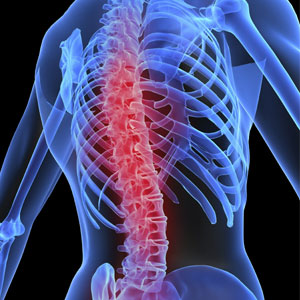 So you’re flocking to online dating sites with a wish list of ideal traits that you desire in a mate. Not so fast! Once you actually meet a potential dating partner, those ideals are likely to fall by the wayside, according to new research from Northwestern University and Texas A&M University and reported by the NU NewsCenter.
So you’re flocking to online dating sites with a wish list of ideal traits that you desire in a mate. Not so fast! Once you actually meet a potential dating partner, those ideals are likely to fall by the wayside, according to new research from Northwestern University and Texas A&M University and reported by the NU NewsCenter.
People liked potential partners that matched their ideals more than those that mismatched their ideals when they examined written descriptions of potential partners, but those same ideals didn’t matter once they actually met in person, according to a new study by psychologists Paul W. Eastwick, Eli J. Finkel and Alice H. Eagly.
“People have ideas about the abstract qualities they’re looking for in a romantic partner,” said Eastwick, assistant professor of psychology at Texas A&M University and lead author of the study. “But once you actually meet somebody face to face, those ideal preferences for traits tend to be quite flexible.” Say you prefer a partner who, online or on paper, fits the bill of being persistent. “After meeting in person, you might feel that, yeah, that person is persistent, but he can’t compromise on anything. It’s not the determined and diligent kind of persistent that you initially had in mind,” Eastwick said.
The idea is that the whole is greater than the sum of its parts, said Finkel, associate professor of psychology at Northwestern University and co-author of the study. “People are not simply the average of their traits,” he said. “Knowing that somebody is persistent, ambitious and sexy does not tell you what that person is actually like. It doesn’t make sense for us to search for partners that way.”
“Thinking about this or that feature of a person apart from taking the whole person into account doesn't predict actual attraction,” Eagly said. “While some online dating sites have video features that provide some context, generally people are matched on their answers to specific questions that do not capture the whole person.”
Scores from answers to questions such as “How much money do you earn?” or “Are you extroverted?” provide two-dimensional facts rather than three-dimensional humanness, Finkel said.
For those seeking prospective partners, don't be surprised if you end up ignoring your preconceived notions about what would make an ideal mate.
“Based on those ideals, you might end up liking a person upon meeting face to face, or you might have the opposite reaction,” Finkel said. As Eastwick notes, it is not uncommon for someone to say, ‘If you had tried to set me up with this guy, I would never have gone out with him, but I’m so glad I did!’”
The study, “When and Why Do Ideal Partner Preferences Affect the Process of Initiating and Maintaining Romantic Relationships?” will appear in the November edition of the Journal of Personality and Social Psychology.
Source: Hilary Hurd Anyaso, law and social sciences editor, NU NewsCenter.


 are listed below.
are listed below. Today’s athletic high school girls “got game” on the basketball court and soccer field, but they are at a greater risk for sports-related knee injuries than their male counterparts.
Today’s athletic high school girls “got game” on the basketball court and soccer field, but they are at a greater risk for sports-related knee injuries than their male counterparts. Consumers are often frustrated when they hear the results of research studies that indicate a "maybe" rather than a definitive answer. Here's an interesting study that demonstrates the long road researchers often have to take. On the other hand, trial and error sometimes leads to surprising results and are worth it. This example also demonstrates how different medical disciplines can learn from each other.
Consumers are often frustrated when they hear the results of research studies that indicate a "maybe" rather than a definitive answer. Here's an interesting study that demonstrates the long road researchers often have to take. On the other hand, trial and error sometimes leads to surprising results and are worth it. This example also demonstrates how different medical disciplines can learn from each other.
 Heart disease affects men and women in different ways. In women, symptoms of burgeoning heart disease are often more insidious, but when a heart attack strikes, it is more lethal than it is in men. Roughly 25 percent of men will die within a year of their first heart attack, but among women, 38 percent will die. Women are twice as likely as men to have a second heart attack within 6 years of their first one, and women are twice as likely as men to die after bypass surgery.
Heart disease affects men and women in different ways. In women, symptoms of burgeoning heart disease are often more insidious, but when a heart attack strikes, it is more lethal than it is in men. Roughly 25 percent of men will die within a year of their first heart attack, but among women, 38 percent will die. Women are twice as likely as men to have a second heart attack within 6 years of their first one, and women are twice as likely as men to die after bypass surgery. Are you or a family member at risk for osteoporosis--a serious, potentially debilitating condition more prevalent in women? Over the past decade a number of treatments have become available including bisphosphonates. An excellent one-page summary of benefits and risks is now available from the Hormone Foundation and should be read by all who are considering treatment.
Are you or a family member at risk for osteoporosis--a serious, potentially debilitating condition more prevalent in women? Over the past decade a number of treatments have become available including bisphosphonates. An excellent one-page summary of benefits and risks is now available from the Hormone Foundation and should be read by all who are considering treatment. A recent UT Southwestern Medical Center study found that estrogen regulates energy expenditure, appetite and body weight, while insufficient estrogen receptors in specific parts of the brain may lead to obesity.
A recent UT Southwestern Medical Center study found that estrogen regulates energy expenditure, appetite and body weight, while insufficient estrogen receptors in specific parts of the brain may lead to obesity. Next time you get a haircut, you might end up with a referral to a dermatologist.
Next time you get a haircut, you might end up with a referral to a dermatologist.